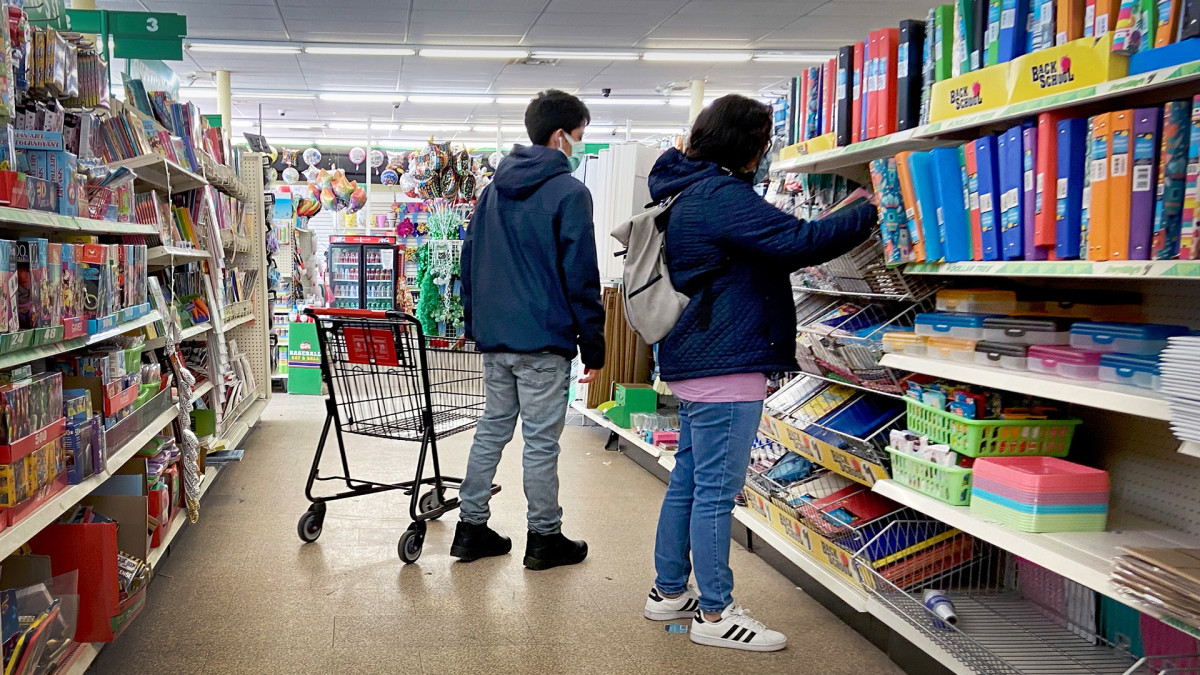
Everyone thought that digital retail would eventually crush brick-and-mortar retail.
But despite the wild success of Amazon and other online retailers, e-commerce accounted for just 14.7% of all retail sales in the second quarter of 2023.
That number was around 20% during the darkest lockdown days of the covid pandemic and it has never climbed higher than that.
In fact, that 14.7% number has not really climbed in years because while people like the convenience of buying online, they also like the immediacy of stores.
Related: Walmart has a shady way to prevent theft Kroger, Target don't use
Next-day or even same-day delivery isn't the same as being able to shop for an item and have it instantly. In addition, some customers — maybe a lot of them — like to actually see and touch what they're buying before they make a purchase. That's certainly true in two key areas: grocery and clothing.
People want to pinch their produce and see what their meat and poultry look like before they buy. With clothing, they run the risk of an item not fitting along with them possibly not liking it, as potential reasons they might have to make a return.
Returns ruin the convenience of shopping online. When you have to go someplace to drop off the item and then wait a day or two for the new one, going to a store clearly is easier.
Brick-and-mortar chains, however, run the risk of making their shopping experience so bad that customers opt for digital retailers.
Some changes made recently by Walmart WMT, Target and Walgreens may actually push some customers over the edge. And now the chief executive of Dollar Tree, which also owns Family Dollar, said his chain plans to copy one of the least customer-friendly moves some of its rivals have made.

Image source: Shutterstock
Target and Walmart lock up some items
A number of major retailers including Target, Walmart and Walgreens WBA have talked about an increase in retail theft, which the industry calls shrink. In some cases, they have taken the extreme steps of closing stores as well as locking up more items.
That's an approach that Dollar Tree CEO Rick Dreiling, speaking during its second-quarter-earnings call, said his company would take.
"We are now taking a very defensive approach to shrink," he said. "And it's taken us a quarter, but we have several new shrink formats that we'll introduce in the back half of the year. And it goes everything from moving certain SKUs to behind the check stand. It has to do with some cases being locked up."
Dreiling also laid out more efforts the company is making to cut down on theft.
"We have some stores that can't keep a certain SKU on the shelf just discontinuing the item. So, we have a lot of things in the works that's going to roll forward," he added.
Retail has a new big bad
Retailers have blamed their theft problems on organized retail crime. Target has been a leading proponent of pinning its theft problems on these gangs. That was how the chain justified recent store closures in Seattle, Portland, Oakland, San Francisco, and New York.
“We cannot continue operating these stores because theft and organized retail crime are threatening the safety of our team and guests, and contributing to unsustainable business performance,” Target said in a news release.
“We know that our stores serve an important role in their communities, but we can only be successful if the working and shopping environment is safe for all."
The key question — and it's different on a market-by-market basis — is whether making the shopping experience worse to cut theft costs more than it helps. That might be true given that theft, while real, has not experienced a massive spike.
The average shrink rate in 2022 increased to 1.6% from 1.4% in 2021 and in line with shrink rates seen in 2020 and 2019, according to the National Retail Federation's latest National Retail Security Survey.
Dollar Tree may have more leeway to inconvenience its customers than Target or Walmart because it sells low-cost merchandise that's not practical to buy online.
Still, a customer forced to wait for a clerk to buy a $1 package of toilet paper or can of soup might just opt for Kroger, Publix or the nearest neighborhood grocery chain as that type of retailer has generally not used locked shelves.
Get investment guidance from trusted portfolio managers without the management fees. Sign up for Action Alerts PLUS now.







